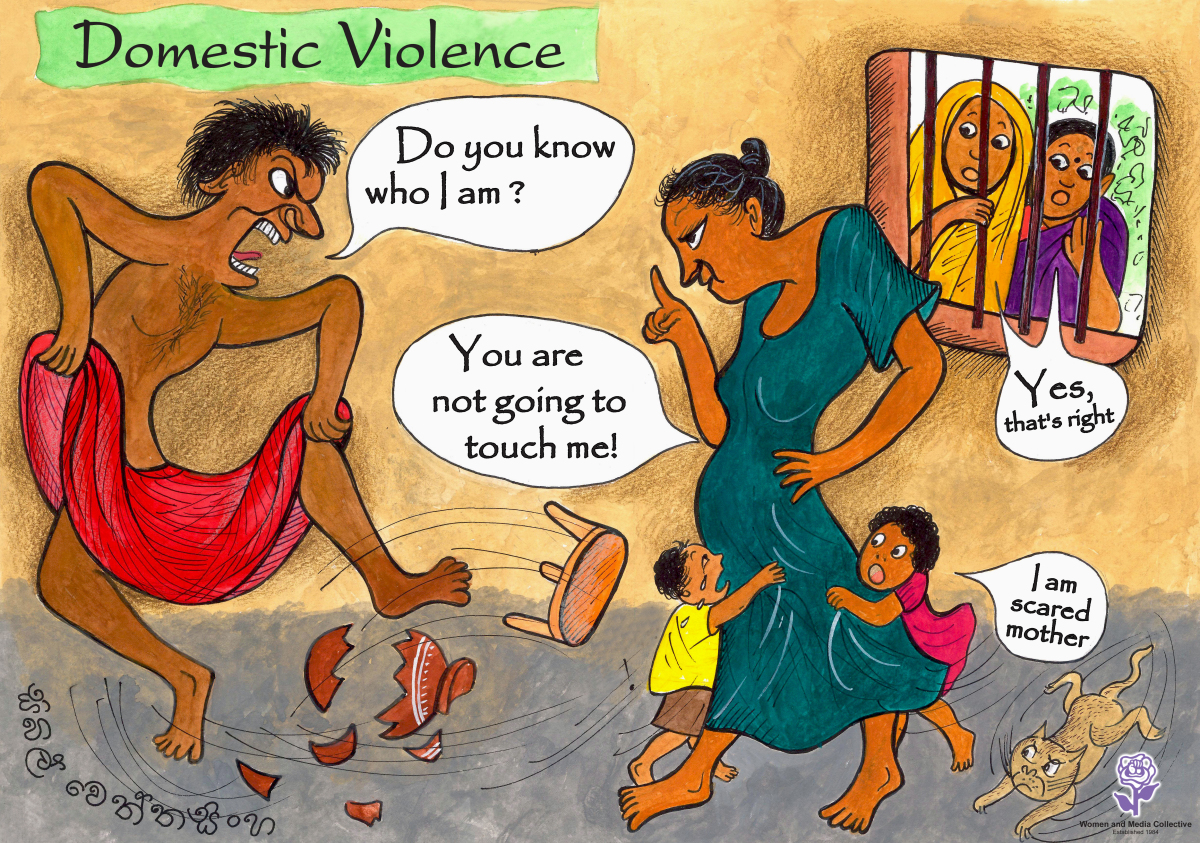Tags:


(Covid-19 and Violence against Women in Sri Lanka)
The number of domestic violence cases involving women has grown during the phase of the COVID-19 pandemic. The increase has mainly been caused as a result of people being restricted to remain indoors with little recourse to any remedial mechanisms. Thus, for women involved in various prolonged abusive relationships, work has so far been the only window of escape. With the entry of COVID-19, this relief was blocked leaving them with no option whatsoever. Be it work, a visit to the place of a relation, to a parent’s house, or a friend, has thus become unattainable.
As per the Chief Nurse of the Sri Lanka National Hospital, around 250 patients were admitted daily, within the time of the pandemic, in relation to domestic violence and abuse. However, only 66 patients were admitted during the curfew. There were several instances where women have witnessed abuse instigated by their husbands among the admitted patients.
Likewise, with a woman’s freedom being limited with COVID-19 restrictions, it further got compounded by the lack of access to any legal recourse or medical redress within these times.
Yet meanwhile, the real question is,
What support do these women get from police and medical institutes once they find a way out and reach for help?
First, it’s possible to issue an interim or security order in compliance with Article 11(a) of the Domestic Violence Prevention Act.
Is it possible to send the aggrieved party to a safe house, and, if so, how do we ensure their physical safety?
According to the circular issued on the 30th March 2020 by the Judicial Services Commission, the courts are currently considering bail applications relating to prisoners only. In such a situation, women only have specific access to a police station where the matter is either reconciled or sidelined, as it is a high priority for the police to abide by the curfew laws.
Unless provided electronically or through mobile clinics, the lockout prevents women from receiving psycho-social treatment resources. However, the possibility of using these facilities is much more limited if they are confined to smaller houses, to accommodate a compatible person, or to deal with the matter with a mate.
A few hotlines have been launched in Sri Lanka to help people complain. While it will be difficult for women living in contained areas to use the hotline and, for social workers whose ability to approach victims is minimal, it still needs to be praised as a welcome change. Providing services through WhatsApp or Viber will likely be more effective as it enables victims to type out their problems if necessary. As per the 2019 digital literacy data report in Sri Lanka, 48 percent of males have digital literacy while females record only a percentage of 41.1.
Thus it draws our attention to consider possible ways and means of addressing this matter of violence against women, with importance, whether or not portable, services are involved. If these were delivered during the pandemic under curfew laws, continuing them with the same modality, to ensure the safety of women and children, will not only give them confidence to reach out, but will also help to diminish the number of cases reported annually.
Featured Image Credits: Women and Media Collective (https://womenandmedia.org/)
Kanchana Geeth Samaraweera
kanchana
Jan 21, 2021
0